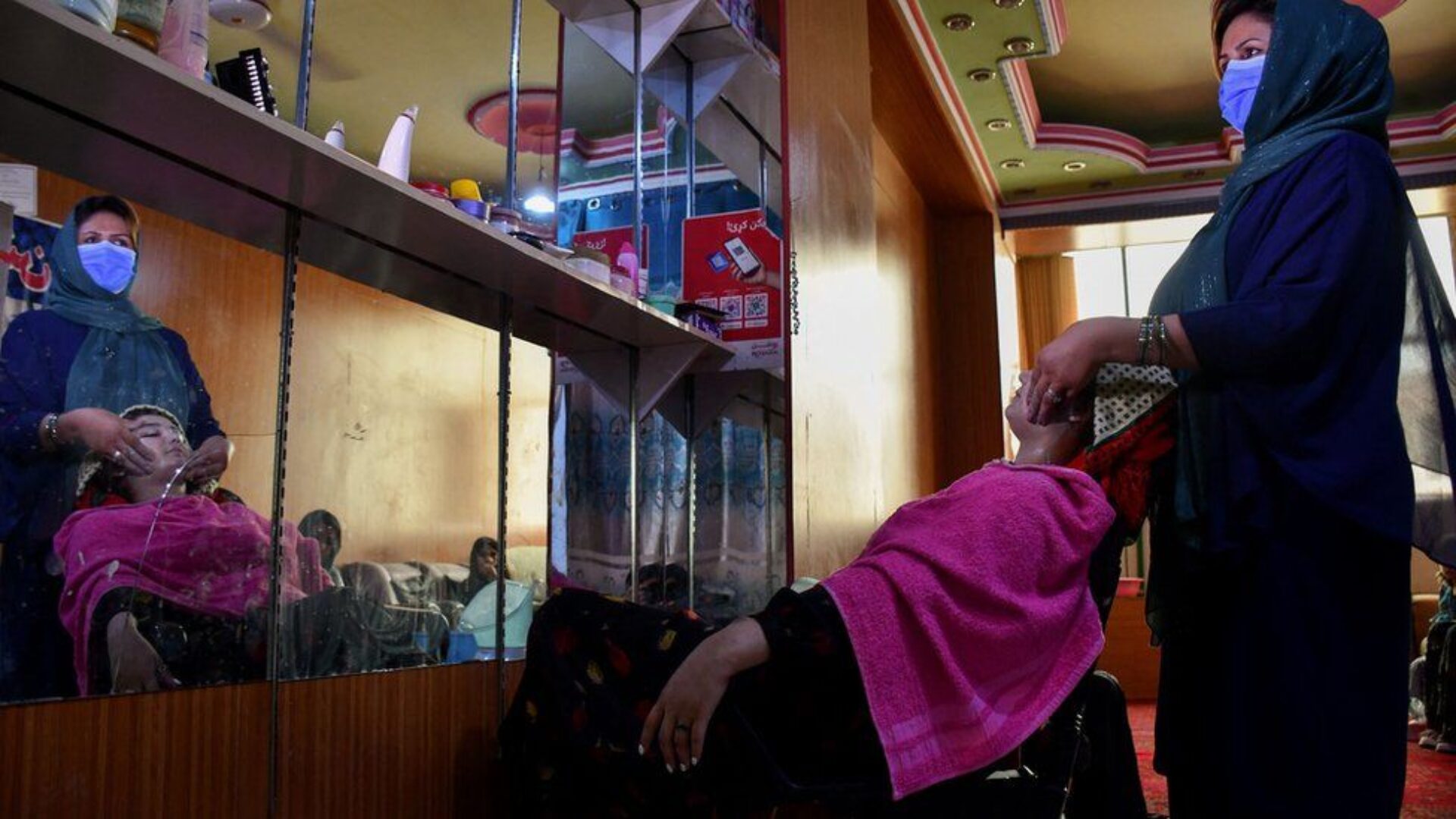Taliban’s ban on beauty salons: Why it matters

Afghan women found their salons empty and, in some cases, padlocked from the outside by Taliban officials on July 25. This is the result of a recent edict which decreed that all beauty salons must shutter because–according to the Taliban–they put unnecessary financial pressure on grooms and their families and may violate Islam if women wear makeup to pray. Afghan beauticians and salon owners protested the edict’s implementation. They were met with water hoses, tasers, and warning shots.
The salon ban is the latest in a series of Taliban edicts that directly target women’s rights and freedoms. The Taliban have also banned women from post-sixth grade education, and barred them from working in public offices, NGOs, and UN agencies.
The private sector is one of a limited number of spaces still open to Afghan women, and until this month, 12,000 salons provided vital livelihoods for their employees. As these salons close in observance of the new edict, 60,000 Afghan women will lose their jobs, exacerbating the economic crisis where 97 percent of the population is already at risk of poverty. Additionally, female employees will lose the freedom they’ve gained as earners and some families will lose their only source of income. Already in desperation, some families are turning to forced marriage and relying on the dowries from these forced marriages; this edict could worsen this troubling trend.
Salons were some of the last businesses open to women to use and within which to work. Beyond economic empowerment, salons provide Afghan women with much-needed community. Afghan women’s space in public life is shrinking: in addition to removing women from schools and offices, the Taliban have barred them from parks and mandated they travel with male chaperones. Salons are women-only, preserving much-needed space for employees and customers to connect in the face of growing isolation. Salon owners view the ban as the Taliban trying to “lock-up people’s lives.”
Isolated, targeted, and hopeless, many Afghan women and girls report suffering from anxiety and depression in what’s been described as a mental health crisis and “pandemic of suicidal thoughts.” Given these circumstances, the Taliban’s latest ban is even worse than it appears.
Through their financial and emotional investments, Afghan women salon owners have created sustainable jobs and flourishing community centers. Afghan women are facing “the most serious women’s rights crisis in the world.” In such dire circumstances, beauty salons are so much more than frivolities–they are lifelines. The Taliban have once again proven that no sector of Afghan life is safe from their scrutiny. These actions serve as another reminder to the international community that the Taliban remain steadfast in their pursuit of the institutionalization of gender persecution, and that international attention and action is urgently needed to restore women and girls’ fundamental rights.
Explore More

The Taliban’s New Criminal Regulation Legalizes Slavery, Violence, and Repression of Women
On January 7, 2026, the Taliban’s emir issued a two-point decree formally…

Iranians are Making History
Iran is one month into historic protests, the most widespread since the…

Women, Peace and Security Conflict Tracker: January Updates
Our Women, Peace and Security Conflict Tracker combines real-time data points and…